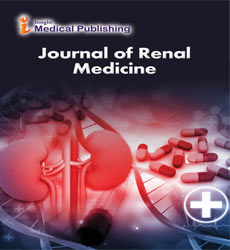Renal physiological regenerative medicine to prevent chronic renal failure
Abstract
With the incidence of end-stage renal disease increasing dramatically during the last ten years, its prevalence rising about 8% per year, chronic kidney disease (CKD) represents one of the most problematic public health problems worldwide. CKD represents a growing clinical problem that, in its terminal stages, requires renal replacement therapy. Kidney transplant has been proposed as the definitive therapy able to address the growing clinical, social and economic problems related to the increasing prevalence of end-stage kidney disease (ESKD). Traditional stem cell-based regenerative medicine, when applied to kidneys disrupted by end-stage renal disease, has been shown to be unable to regenerate the damaged organ. The theme of this work is to hypothesize a new approach to the prevention of CKD, based on the management of the huge amount of stem/progenitor cells physiologically present in the kidney of preterm babies at birth. Here a new concept of primary prevention of renal disease is suggested: a true primary prevention, starting in the perinatal period aimed at increasing the number of functioning glomeruli. This approach has been defined as “physiological regenerative medicine”, in order to underline the use of physiological tools, including endogenous renal stem cells and stem cell stimulators physiologically expressed in our cells.
Open Access Journals
- Aquaculture & Veterinary Science
- Chemistry & Chemical Sciences
- Clinical Sciences
- Engineering
- General Science
- Genetics & Molecular Biology
- Health Care & Nursing
- Immunology & Microbiology
- Materials Science
- Mathematics & Physics
- Medical Sciences
- Neurology & Psychiatry
- Oncology & Cancer Science
- Pharmaceutical Sciences
